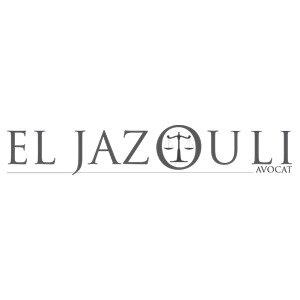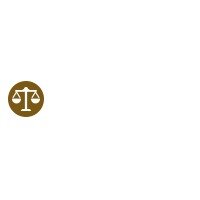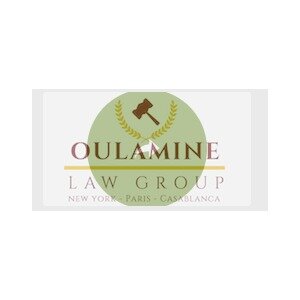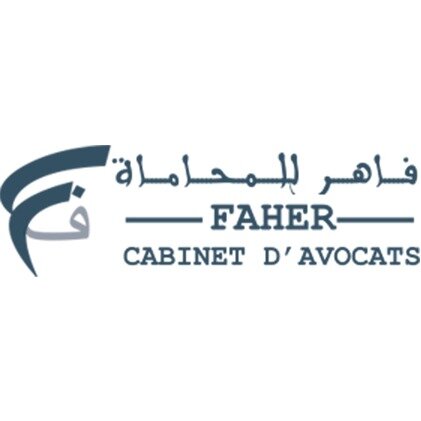Best Corporate & Commercial Lawyers in Morocco
Share your needs with us, get contacted by law firms.
Free. Takes 2 min.
Or refine your search by selecting a city:
List of the best lawyers in Morocco
About Corporate & Commercial Law in Morocco
Corporate and commercial law in Morocco covers all legal aspects of forming, operating, and regulating businesses within the country. It includes a variety of laws and regulations governing corporate structure, shareholder rights and duties, mergers and acquisitions, commercial contracts, foreign investment, taxation, and insolvency. Morocco, as one of North Africa’s most dynamic economies, has shaped its corporate and commercial framework to attract investment, promote economic growth, and protect rights of both local and foreign business entities. The law in this area is a mix of Moroccan law, influenced by French legal traditions, as well as international best practices.
Why You May Need a Lawyer
Navigating the world of corporate and commercial law in Morocco can be complex. Much of the complexity arises from the local regulations, ever-evolving reforms, and the requirement to comply with both national and sometimes international requirements. You may need a specialist lawyer in situations such as:
- Establishing a business or foreign branch in Morocco
- Structuring or restructuring a company
- Drafting or negotiating commercial contracts
- Managing mergers, acquisitions, or joint ventures
- Handling shareholder or partnership disputes
- Understanding compliance and regulations, including licensing and permits
- Protecting intellectual property within a business context
- Debt recovery, insolvency, or bankruptcy issues
- Resolving disputes through litigation, mediation, or arbitration
- Navigating foreign investment rules and incentives
Legal support ensures all business activities are compliant, effective, and that your interests are fully protected throughout the process.
Local Laws Overview
Corporate and commercial law in Morocco is primarily governed by several key statutes and regulatory frameworks:
- Moroccan Commercial Code - Sets out rules for commercial activities, including company formation, commercial contracts, and bankruptcy.
- Law on Joint Stock Companies (SA) and Limited Liability Companies (SARL) - Regulate different company structures, their incorporation, governance standards, and shareholder rights.
- Foreign Investment Laws - Outlines incentives, restrictions, and procedures for non-Moroccan investors wishing to set up or invest in companies.
- Corporate Governance Regulations - Establishes rules for management, transparency, and reporting, especially for larger entities.
- Taxation Law - Corporate tax, VAT, and other levies are governed by the General Tax Code.
- Labour Code - Addresses key obligations for employers regarding employees, contracts, and workplace rights.
- Intellectual Property Laws - Protect patents, trademarks, and copyright within the commercial context.
Morocco offers several free zones, such as Casablanca Finance City and Tangier Free Zone, which provide specific commercial and tax benefits for certain sectors and foreign investors. Moroccan law values commercial contracts but also sets out protective clauses and limitations, especially for weaker parties.
Frequently Asked Questions
What are the most common types of companies in Morocco?
The most common company types are the Société Anonyme (SA or Joint Stock Company), Société à Responsabilité Limitée (SARL or Limited Liability Company), and the branch or liaison office for foreign companies. Each structure varies in terms of minimum capital, management requirements, and disclosure obligations.
What is the process for incorporating a company in Morocco?
Incorporation involves choosing a business structure, drafting and notarizing bylaws, registering with the Moroccan Commercial Registry, obtaining a tax ID, and enrolling with social security and other required institutions. The process can take one to six weeks depending on the complexity.
Can foreigners own and operate businesses in Morocco?
Yes, Moroccan law allows foreigners to own 100 percent of most types of businesses, though some sectors may have restrictions or require joint ventures with local partners.
Do I need a local partner or director to start a company?
A local partner is not mandatory unless special regulations for strategic sectors apply. However, a registered office in Morocco is required, and at least one director must be appointed, who can be a foreign or Moroccan resident.
Are commercial contracts enforceable in Morocco?
Yes, as long as the contract complies with Moroccan laws and public order. Contracts should ideally be drafted in French or Arabic for legal certainty, and certain contracts may require notarization.
What are the main taxes on corporate entities?
Companies are subject to corporate tax, value-added tax (VAT), registration duties, and various local taxes. The corporate tax rate is progressive, with rates ranging depending on annual profits. Some free zones offer preferential tax rates for qualifying activities.
What are the rules for repatriating profits abroad?
Foreign investors may freely repatriate profits, dividends, and capital gains, provided the initial investment is made in foreign currency and duly registered with the Moroccan Foreign Exchange Office.
How is dispute resolution handled in commercial cases?
Most commercial disputes are examined before specialized commercial courts. Arbitration is also well recognized, particularly for international business contracts. Some cases may also be settled through mediation.
What is required for mergers and acquisitions?
Mergers and acquisitions require due diligence, board and shareholder approvals, and sometimes regulatory clearance for sensitive sectors. Notarial acts and registry updates are part of the process, and notifications to competition authorities may be required.
How do I protect intellectual property for my business?
Register patents, trademarks, and designs with the Moroccan Office of Industrial and Commercial Property. Early registration is key, especially for foreign investors entering the market.
Additional Resources
If you need further information or official guidance, consider consulting the following resources:
- Moroccan Ministry of Industry and Trade - Provides regulatory updates, permits, and investment guidelines.
- Regional Investment Centers (CRI) - Assist with company set up and local administrative procedures across Morocco.
- Moroccan Office of Industrial and Commercial Property (OMPIC) - Manages company registration and intellectual property rights.
- Moroccan General Tax Directorate - Offers information on tax obligations for businesses.
- Moroccan Bar Associations - List qualified legal professionals by specialization.
- Chambers of Commerce and Industry - Provide support, especially for foreign and joint ventures.
Next Steps
If you are considering starting a business, investing, or handling a commercial matter in Morocco, here is how you can proceed:
- Identify your main needs, whether it is incorporation, contract drafting, compliance, or dispute resolution.
- Reach out to a Moroccan lawyer or law firm specializing in corporate and commercial matters, particularly those with experience helping foreign clients if applicable to your case.
- Prepare your documentation, including identification, any company records, or project plans.
- Schedule a consultation to discuss your goals and receive guidance tailored to your needs.
- Follow expert advice and carry out necessary legal and administrative registrations.
Professional legal support can help you avoid costly errors and ensure your business activities are both profitable and fully compliant with Moroccan law.
Lawzana helps you find the best lawyers and law firms in Morocco through a curated and pre-screened list of qualified legal professionals. Our platform offers rankings and detailed profiles of attorneys and law firms, allowing you to compare based on practice areas, including Corporate & Commercial, experience, and client feedback.
Each profile includes a description of the firm's areas of practice, client reviews, team members and partners, year of establishment, spoken languages, office locations, contact information, social media presence, and any published articles or resources. Most firms on our platform speak English and are experienced in both local and international legal matters.
Get a quote from top-rated law firms in Morocco — quickly, securely, and without unnecessary hassle.
Disclaimer:
The information provided on this page is for general informational purposes only and does not constitute legal advice. While we strive to ensure the accuracy and relevance of the content, legal information may change over time, and interpretations of the law can vary. You should always consult with a qualified legal professional for advice specific to your situation.
We disclaim all liability for actions taken or not taken based on the content of this page. If you believe any information is incorrect or outdated, please contact us, and we will review and update it where appropriate.
Browse corporate & commercial law firms by service in Morocco
Morocco Attorneys in related practice areas.
Browse corporate & commercial law firms by city in Morocco
Refine your search by selecting a city.

















